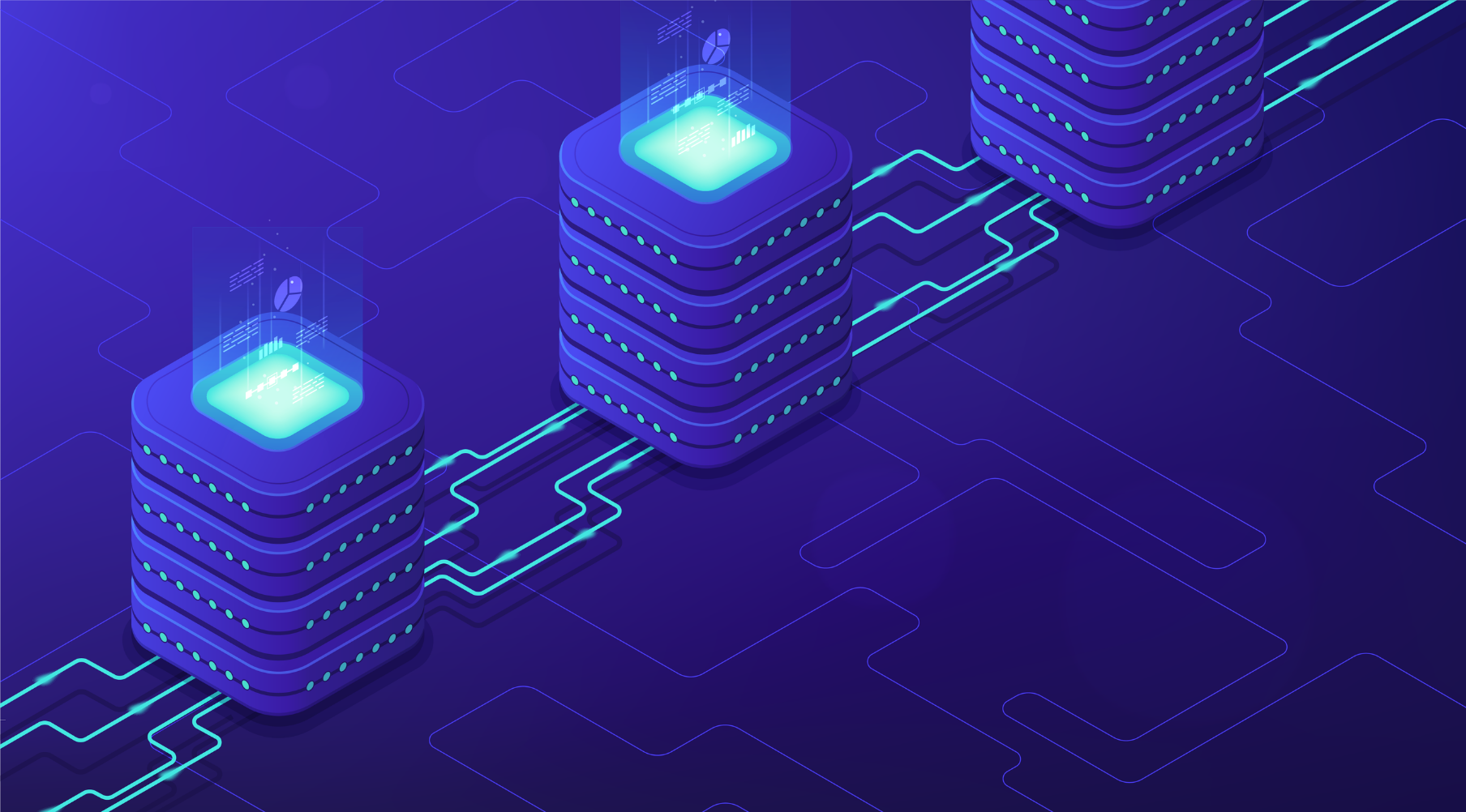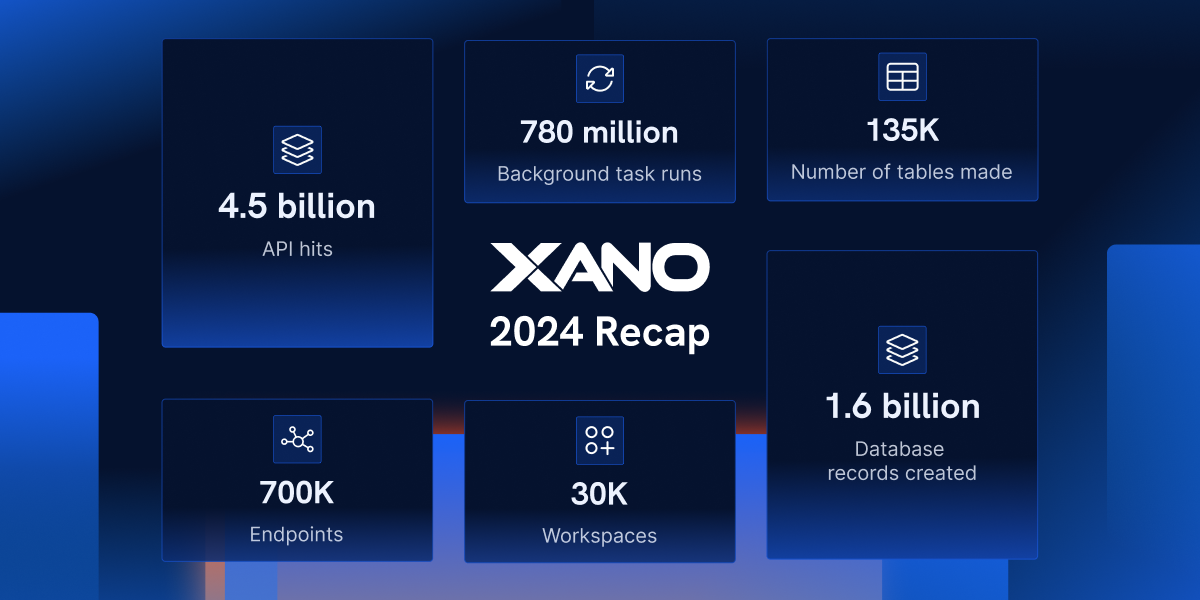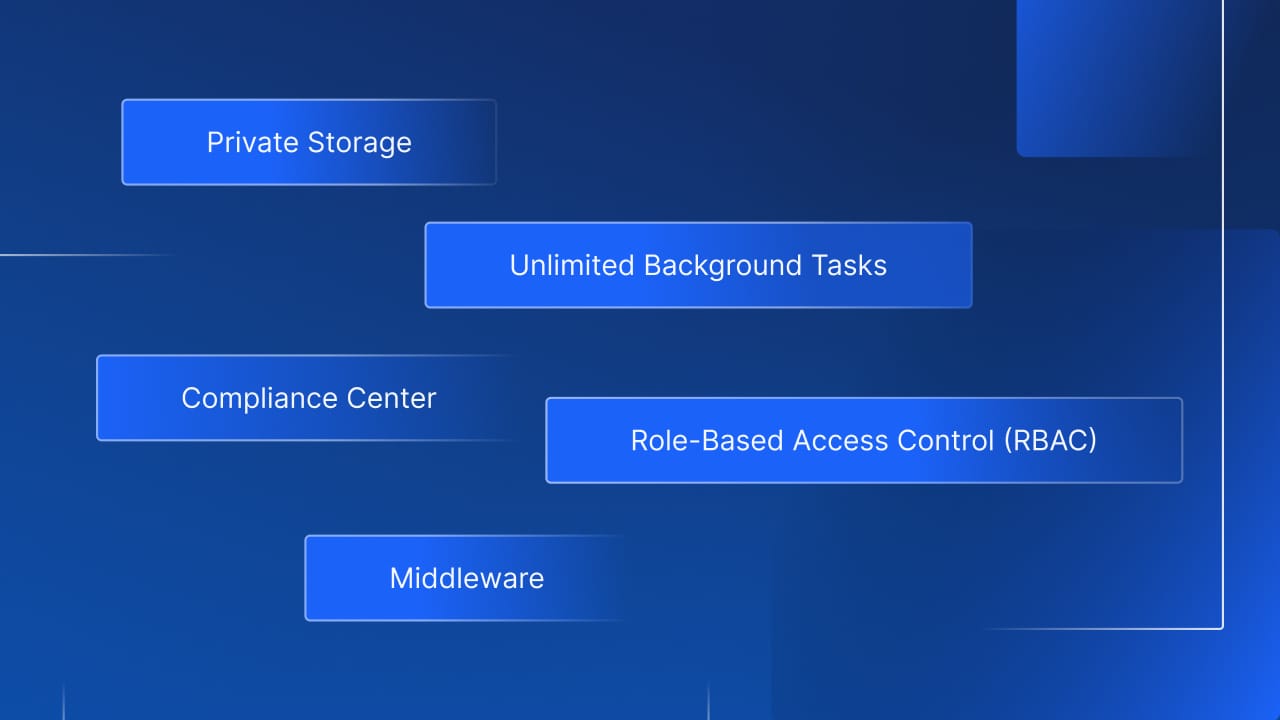SQL Vs. NOSQL Database: What's The Difference & Why It Matters
By Xano | November 24, 2021

Selecting the right database for your company is an important decision. SQL remains the most widely used and is popular due to its interactive language and easy learning curve. While SQL may meet your needs the majority of the time, sometimes companies experience rapid growth and end up needing more flexibility than SQL can provide.
This is where NoSQL databases come in. NoSQL stands for “Not only SQL.” Developed in the ‘90s, NoSQL remains popular today as it offers more complex features that SQL lacks. Below, we'll break down the key differences between SQL and NoSQL to help you decide which is right for you.
What Is SQL?
Structured Query Language (SQL) is the standard language used for managing data in a regional database. With SQL, you can insert, search for, update, and delete data records with fairly simple commands. (We've covered the basics in a past blost post, if you want more information.)
You can also do more complex tasks using SQL, such as optimizing and maintaining multiple databases. It takes some practice to get from the basics to doing more complicated database management tasks, but SQL is a very user-friendly language. Because it's so popular, there are ample resources available online to help you learn. Most programmers can pick up SQL fairly quickly.
What Is NoSQL?
As we touched on above, NoSQL stands for “not only SQL,” meaning it's a sort of extension of the capabilities SQL provides. NoSQL is a self-describing database, meaning it does not require a schema and it does not enforce relationships between tables in every case.
Relational database management systems typically use SQL to perform tasks like storing and retrieving data. A NoSQL database includes a much wider range of database technologies, allowing the user to access many different types of data. This adds an extra layer of flexibility, which can be important for fast growing companies.
What Are The Differences?
Query Languages
SQL uses structured query language with a predefined scheme for both defining and manipulating data. In most cases – including complex queries – SQL works very well. However, occasionally, it can be too restrictive depending on your needs.
NoSQL has dynamic schemas ideal for unstructured data. As we discussed a bit above, with NoSQL, you can store your data in a variety of ways from column-oriented to document-oriented to graph-based and so on. This flexibility has many advantages, such as the ability to give each document a unique structure and allowing syntax to vary from database to database.
Performance
Both SQL and NoSQL perform well in most cases, and – if you do run into performance issues – there are plenty of online resources to help you troubleshoot common issues. However, there are some cases where performance may be more of an issue with one over the other.
When you start experiencing performance issues with an SQL database, the answer is usually a bigger server that can accommodate a larger amount of data. Cost can sometimes be a barrier here. With NoSQL, you can scale horizontally, meaning you can add new servers as needed without spending money on features like RAM and CPU. This actually brings us to our next point.
Scalability
As you probably gathered, NoSQL is the better choice when it comes to scalability. SQL databases are vertically scalable, which means you increase your server by increasing things like RAM or CPU. In many cases, this is entirely efficient and you will not run into any issues.
However, for rapidly growing companies, expending extra time and resources on vertical scaling can stymie growth. NoSQL's horizontally scalable database – where you can increase traffic by adding more servers – may be better depending on your circumstance.
Data Storage
Data storage is generally more straightforward with SQL as the storage model has tables with fixed rows and columns. With NoSQL, there are multiple different storage models, ranging from key-value models to graph databases and beyond. While SQL is often simpler to work with, NoSQL may offer more choices for companies with more complex data storage needs.
Community
As SQL has been around a long time, the community is stronger overall. There is a lot more online support if you run into issues with SQL and many more programmers are proficient in it.
However, a small community doesn't mean no community. There are still ample online resources for those working with NoSQL and, as its popularity grows, the community will as well.
Which Is Right For Me?
The choice between SQL and NoSQL really depends on your needs. The vast majority of companies can easily get by with SQL, and you'll also be much more likely to find programmers with SQL experience. Also, if you need all your data to be consistent, SQL is usually the superior option.
However, fast growing companies with no schema definitions often require more flexible solutions. If your company is analyzing large quantities of data or if your data structure is variable, NoSQL is typically the better choice.
As with any decision, however, there are really no hard and fast rules. You'll need to take a close look at your company's needs, including the capabilities of your programmers, before making a decision.
SQL Vs. NoSQL: The Bottom Line
While SQL is more popular and widely used than NoSQL, that doesn't necessarily mean it's the best choice for every project. Rapidly growing companies that handle large amounts of data may benefit from giving NoSQL a try. With a little time and research, you can decide what's best for you and your company.
Looking for solutions for your company? Xano is the fastest No Code Backend development platform on the market. We give you a scalable server, a flexible database, and a No Code API builder that can transform, filter, and integrate with data from anywhere. Sign up here to get started.
The post SQL Vs. NOSQL Database: What’s The Difference & Why It Matters appeared first on Xano.

















